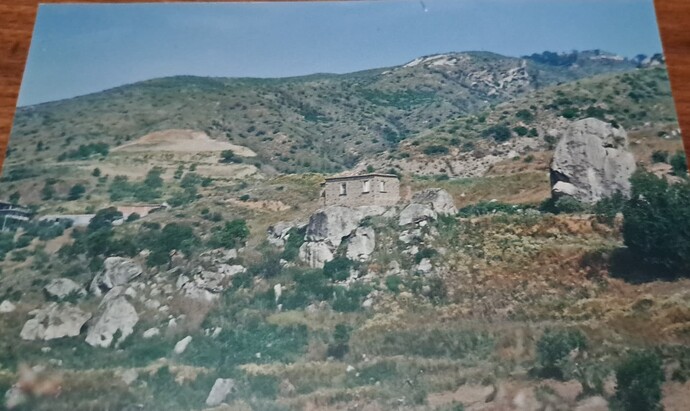Hey all,
I am currently immersed in a research project exploring the historical names associated with a specific fief in Calabria, Italy: Lisara, Ropala, Rivittone , and Sirhara . These names appear to denote the same place, and I am would like to uncover their origins and connections.
Historical Context
The earliest reference I have encountered is from a Norman document in Latin dated 1212 , where the name Rivittone , or Rivitone alias Sirhara , is mentioned. This document serves as a crucial point in my research, as it suggests a long-standing historical significance of the area.
The later names, Ropala and Rivittone alias Lisara , surface in documents from the 1500s , indicating the evolution of the place’s nomenclature over time. Understanding how these names are interlinked and how they reflect the area’s history is at the core of my inquiry.
(see a picture of the main area of the fief in early 2000)
Linguistic Influences
The linguistic history of Ionian Calabria is particularly rich and complex. The region experienced significant Greek colonization, which likely influenced local dialects and names. Additionally, the Arab presence in Sicily in the IX century could have left a mark on the language and naming conventions.
My first impression was that the name Sirhará could come the arab word “sirr” (سرّ), “secret, mistery” or “shr”, “spell, enchantment”; on the other side, the word “Lisara ” could come from the greek λίθος, “stone”, which would make sense considering the massive monolith present in the area. I have no clue of the meaning of Ropala and Rivittone tho. Any ideas? is the hypotesis on Lisara and Sirharà completely out of the world?
Call for Contributions
I am reaching out to the community for insights, resources, or any relevant information related to these names and their historical significance. If you have:
- Expertise in etymology or historical linguistics, particularly regarding Greek or Arabic influences in Italian place names;
- Academic references or historical documents that could provide clues about the origins of Lisara , Ropala , Rivittone , or Sirhara;
- Knowledge of local dialects or historical contexts that might illuminate the meanings of these names;
I am sure somebody here will have some interesting ideas that will help me understanding how these names evolved and what they reveal about this place. Also, do not hesitate to reach out should you need other information.
Please feel free to leave a comment below or contact me directly with any insights or suggestions. Thank you for your support in this exciting journey to explore the etymology of Calabria’s historical names!
Cheers,
E.
